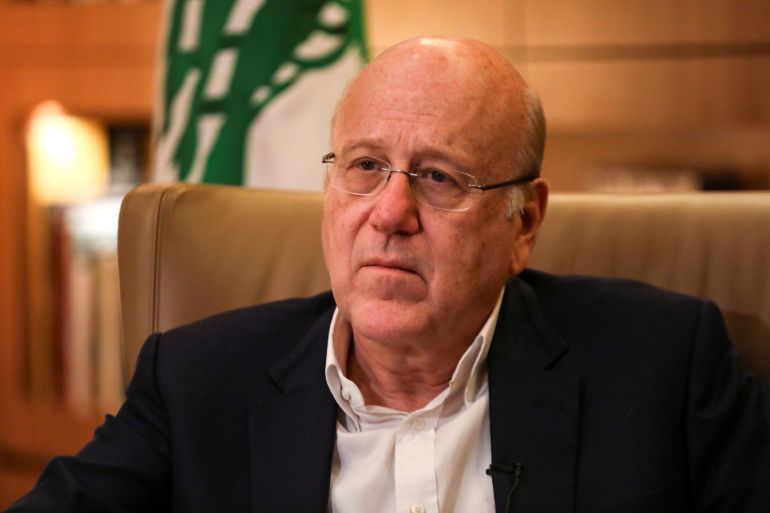Saudi Arabia welcomes ‘positive points’ in Lebanese PM statement
In a sign of easing tensions, Saudi Arabia says it hopes to ‘contribute to the restoration of Lebanon’s role and status on the Arab and international levels’.

Saudi Arabia’s foreign ministry has said it welcomed the “positive points” in a statement by Lebanon’s prime minister, in a sign that Beirut’s tensions with Gulf Arab countries are easing.
Lebanese Prime Minister Najib Mikati stressed in a statement on Monday the need to stop all Lebanon-originated activities that affect the security and stability of Saudi Arabia and other Gulf Arab countries.
Keep reading
list of 3 itemsLebanon: Politicians mobilise in Sunni districts after Hariri
Dozens escape security crackdown, poverty in Lebanon to join ISIL
He added the Lebanese government is committed to strengthening cooperation with Saudi Arabia, following a phone call with Kuwait’s Foreign Minister Sheikh Ahmad Nasser Al-Mohammad Al-Sabah.
The Saudi ministry on Tuesday said it welcomed Mikati’s statement, adding it hoped that it will “contribute to the restoration of Lebanon’s role and status on the Arab and international levels”.
Saudi Arabia and other Gulf countries expelled Lebanese envoys last year in a diplomatic spat that has deepened Lebanon’s economic crisis, following critical comments about the Saudi-led military intervention in Yemen by Lebanon’s former Information Minister George Kordahi.
Riyadh says the crisis with Lebanon had its origins in a Lebanese political setup that reinforces the dominance of the Iran-backed Hezbollah armed group and continues to allow endemic instability.
Saudi Arabia and its fellow wealthy neighbours once spent billions of dollars in aid in Lebanon, and still host a huge Lebanese diaspora. But the friendship has been strained for years by the growing influence of the powerful Hezbollah movement in Lebanon.
A financial meltdown has crashed the Lebanese currency and left most of the population facing poverty amid skyrocketing commodity prices in the international markets.